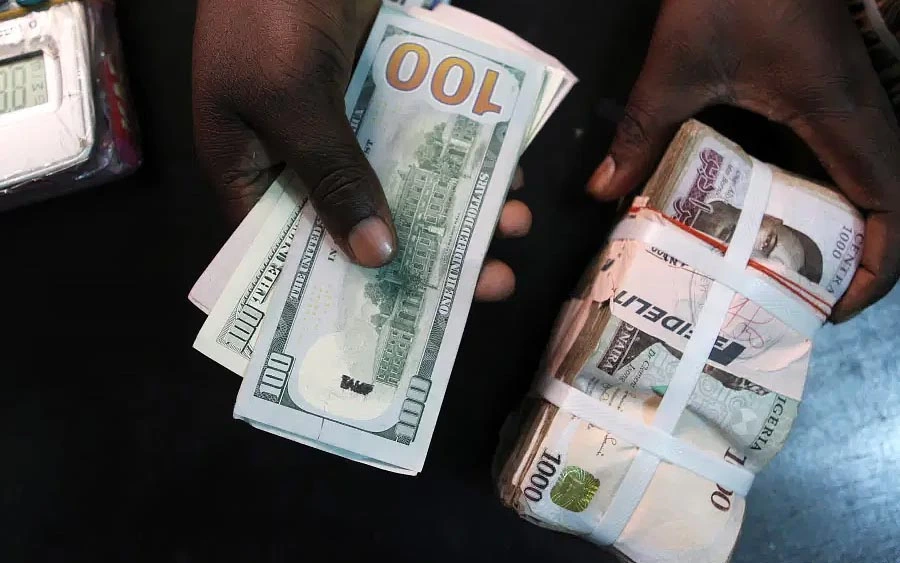Nigeria’s currency, the Naira has slid to N614 against the dollar at the parallel section of the foreign exchange market. The figure signifies a depreciation of N7 or 1.2 per cent compared to the N607 14 days ago.
Bureaux De Change operators (BDCs), popularly known as ‘abokis’, said on Tuesday, that they purchase the greenback at N608/$, make a gain of N6, and then sell at N614. At the official market, the Naira also depreciated by 0.21 percent to close at N421/$ on Monday, information from FMDQ OTC Securities Exchange, a platform that oversees official foreign-exchange trading, indicated.
Nigeria operates multiple exchange rate windows ranging from the Importers and Exporters (I&E) window, where forex is traded between exporters, investors, and purchasers of forex, the SMEIS window where forex is sold to importers, and others.
Such international organisations as the World Bank and the International Monetary Fund (IMF) have constantly advised the Central Bank of Nigeria (CBN) to unify the official and parallel market exchange rates.
But Godwin Emefiele, CBN governor, had said that despite advice offered by IMF and the World Bank, such developing economies as Nigeria had the liberty of adopting “homegrown solutions” to their economic problems. He pointed out that the managed floating exchange rate, which allows the CBN to intervene in the market when there is a supply shock, would be in place as long as supply exceeds demand.
Said he: “They want us to free the exchange rate. And you do know that this has some impacts on the exchange rate itself. When you allow that to happen, you will have an uncontrollable spiral on the Naira. But what managed float means is that we have some measures in place to help control the spiral”.





